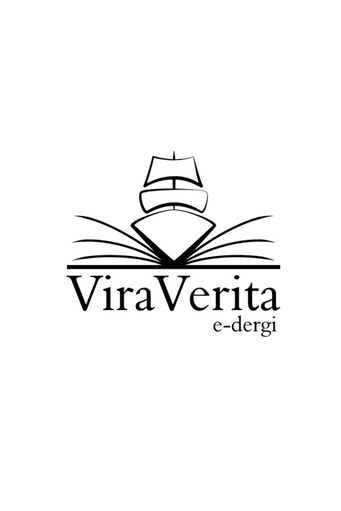ALAIN BADIOU'NUN HAKİKAT KURAMI
Alain Badiou hem on dokuzuncu yüzyılın büyük Hakikat anlayışı hem de postmodern geleneğin hakikati göreli olarak kavramasını eleştirerek, hakikatin göreli olmayan/nesnel dayanakları olan bir "çokluk" olduğunu göstermeye çalışır. Bu yazıda Badiou'nun bu iddiasını ne denli temellendirebilmiş olduğu sorgulanacaktır. Bu amaçla hakikatin ne olduğuna dair genel bilgi verilmesinin ardından, hakikatin eksiltme biçimlerinin (karar verilemez, ayırdedilemez, türeyimsel ve adlandırılamayan) analizi yapılıp hakikatin iki unsuru olan özne ve olayın nasıl mistik bir şeye dönüştüğü, hakikatin ise ulaşılamaz bir öteye nasıl havale edildiği gösterilmeye çalışılacak. Son bölümde ise, hakikat prosedürlerinin analiziyle, hakikat ve hakikatin öznesi arasındaki ilişkinin "düşünce" alanına taşınmış olması nedeniyle, hakikatin soyut ve maddi yaşamdan kopuk olduğu iddia edilecektir.
Anahtar Kelimeler:
Alain Badiou, olay, özne, hakikat, çokluk, sonsuzluk, görelilik.
Alain Badiou's Theory of Truth
Alain Badiou tries to indicate that truth is multiple with its objective foundations and so it is not relative by criticizing both the great understandings of Truth in the nineteenth century and the relative truths of postmodernism. In this essay, I will try to examine whether Badiou’s thoughts are well grounded. After having presented generally what truth is about, I will analyze the subtracted elements of truth (the undecidable, the indiscernible, the generic, the unnamable) to demonstrate how subject and event as the two elements of reality are turned into mystical things and how truth is passed into something beyond attainable. In the last section of the paper, by construing the truth procedures in Badiou's philosophy, it will be claimed that according to Badiou truths are abstract and indifferent to the real life since the relationship between truth and its subject is grounded only by the mediation of subject's "life of thought".
Keywords:
Alain Badiou, event, subject, truth, multiplicity, infinity, relativity.,
___
- Badiou, A. (1998). Infinite Thought: Truth and the Return to Philosophy. (O. Feltham ve J. Clemens, Çev.). Londra ve New York: Continuum.
- Badiou, A. (1999). Manifesto for Philosophy. (N. Madarasz, Çev.). Albany: State University of New York Press.
- Badiou, A. (2004). Theoretical Writings. (R. Brassier ve A. Toscano, Çev.). Londra ve New York: Continuum.
- Badiou, A. (2005a). Being and Event. (O. Feltham, Çev.). Londra ve New York: Continuum.
- Badiou, A. (2005b). Metapolitics. (J. Barker, Çev.). Londra ve New York: Verso.
- Badiou, A. (2005c). Handbook of Inaesthetics, (A. Toscano, Çev.). Stanford: Stanford University Press.
- Badiou, A. (2005d). “Politics: A non-Expressive Dialectics”. http://blog.urbanomic.com/sphaleotas/archives/badiou-politics.pdf
- Badiou, A. (2006). Briefing on Existence: A Short Treatise on Transitory Ontology, (N. Madarasz, Çev.), Albany: State University of New York Press.
- Badiou, A. (2007). The Century. (A. Toscano, Çev.). Cambridge: Polity Press.
- Badiou, A. (2009a). Logics of Worlds: Being and Event 2. (A. Toscano Çev.). Londra ve New York: Continuum.
- Badiou, A. (2009b). Theory of Subject, (B. Bosteels, Çev.), Londra ve New York: Continuum.
- Badiou, A. (2011). Sonlu ve Sonsuz, (Murat Erşen, Çev.), İstanbul: Monokl Yayınları.
- Bensaïd, D. (2007). Alain Badiou and the Miracle of the Event. İçinde P. Hallward (ed) Think Again: Alain Badiou and the Future of Philosophy (s. 95-105). Londra ve New York: Continuum.
- Hallward, P. (2003). Badiou: a Subject to Truth, Minneapolis ve Londra: University of Minnesota Press.
- Hallward, P. (2007). Introduction: Consequences of Abstraction. İçinde P. Hallward (ed) Think Again: Alain Badiou and the Future of Philosophy (s. 1-20). Londra ve New York: Continuum.
- Lacan, J. (1990). Television, (D. Hollier, R. Krauss ve A. Michelson, Çev.). Londra ve New York: W.W. Norton & Company.
- Madarasz, N. (2009). “The Regularity of non-Being: Space and Form in Alain Badiou’s System”, Environment and Planning D: Society and Space, 27, 5, 796-822.
- O’Sullivan, S. (2009). “The Strange Temporality of the Subject: Badiou and Deleuze between the finite and Infinite”, Subjectivity, 27, 155-171.
- Sohlberg, P. (2009). “Is There Nothing Beyond Postmodernism and ‘the Theoretical Other’? The Need for Balancing Universalism and Diversity in Social Work”, International Journal of Social Welfare, 18, 317-322.
- ISSN: 2149-3081
- Başlangıç: 2015
- Yayıncı: Çetin TÜRKYILMAZ
Sayıdaki Diğer Makaleler
BAŞKA BİR AYDINLANMA: SPİNOZA’DA MİT VE İMGELEM
BİR HAK OLARAK AKADEMİK ÖZGÜRLÜK
ÇOKUZ AMA YOKUZ: TÜRKİYE’DEKİ AKADEMİSYEN KADINLAR ÜZERİNE BİR ANALİZ
ALAIN BADIOU'NUN HAKİKAT KURAMI
FAKÜLTELERİN BİRBİRLERİYLE İLİŞKİSİ ÜZERİNE
EMEK HAREKETİNDE YENİ ARAYIŞLARA BİR ÖRNEK: PİYASALAŞAN AKADEMİDE ASİSTAN DAYANIŞMALARI
AKADEMİDE GÜVENCESİZ ÇALIŞMA: ARAŞTIRMA GÖREVLİLERİNİN DENEYİMLERİ
